This third post in the 2017 Asia Sustainability Reporting Summit #ReportingMania highlights presents two formidable GRI women: Christianna (Christy) Wood, Chair of GRI, and Aditi Haldar. GRI's South Asia Director.
 |
| Christy Wood. Photo courtesy of CSRWorks |
 |
| Aditi Haldar. Photo courtesy of CSRWorks |
Christy Wood gave an opening keynote and joined the panel discussion on sustainability reporting for competitive advantage.
Now as you may know, GRI is celebrating 20 years of contribution to sustainable development and the advancement of reporting.
And although GRI is sounding very optimistic these days, it has been in somewhat of an existential crisis over the past few years as confusion with integrated reporting and the proliferation of alternative reporting frameworks, not to mention a leadership disaster with the departure of a CEO and his replacement with the much more credible Tim Mohin, have created rather a scuttle to re-position GRI as the Holy Grail of sustainability reporting and the key to our brighter future.
Christy Wood didn't skirt around this core issue. (the red bits are my emphasis)
"GRI is the developer of the world's most widely used sustainability reporting standards. Business can be a force for good and can change the world for the better. We can no longer live in a world that can condone practices like polluting the environment, or children being forced to work instead of going to school or women earning less than men. In order to address these concerns, we must challenge ourselves and work to make sustainability reporting more effective as a tool for decision-making that helps create conditions for sustainable development."
"My background is investing with over thirty years investing institutional capital. I know that making a profit can and should go hand in hand with protecting the environment and creating a fair and inclusive global society. Savvy investors put their capital with companies that are actively managing a broad range of risks and opportunities. And you can only get that perspective by using GRI Standards."
"Sustainability reporting has grown in the past 20 years from a niche to a mainstream practice. 72% of all companies that report on sustainability use GRI Standards. Our standards are referenced in policies in over 50 countries. GRI is the world's most widely used and recognized sustainability reporting standards and other means of reporting standards that are out there must not be seen as a substitute. For example, I have often been asked whether is it better for companies to use sustainability reporting or integrated reporting. But this is a false choice. The contents of sustainability report and an integrated report are not competing. They are completely complementary. Robust sustainability metrics and multi-stakeholder approaches are a prerequisite for any kind of integrated reporting. Investors knows that when a company uses GRI Standards they are serious about improving their sustainability performance. Any company can use GRI standards. GRI does not tell companies what topics to report on - companies must choose for themselves. GRI reporting process calls on companies to conduct their own stakeholder engagement to decide what's important."
"GRI standards have been downloaded 30,000 times. The reason companies use the GRI framework is that they reap so many benefits from sustainability reporting. The reporting process provides the business with vital information that can help the company create value in the medium and long term. More and more investors are interested in this information which is why companies that report this information have better access to financial capital."
"After decades of leadership in this space, we feel it is our role to continue to facilitate the evolution of the future of reporting. The two main challenges we see are the quality and the usefulness of ESG data and the fragmentation in the market for corporate reporting. The traditional 100-page PDF, full of information that is sometimes 18 months old has become the norm. These reports and the data within them are useful, but good reporting does more than just catalogue the past, it gives an indication of how the company can best position itself for future success. To do that companies must make their reporting more concise and more timely and more responsive to stakeholder concerns. Improvements to the GRI standards will help companies do a better job of providing decision-useful information. We also want to help companies do a better job of reporting on problem areas alongside successes. It is easy to praise oneself for doing something successfully, but our most persistent problems like climate change are the result of our collective failures. To address these issues, companies need to focus their report on areas they need to make the most improvements. On the second point about fragmentation in the market place over the last few years, more and more reporting methods have been developed. Many are to suit the needs of subsets of stakeholders, such as investors, people like myself. To reduce this confusion, GRI is working with almost all other organizations including the CDP, the IIRC and ISO, and we are also working with the UNGC on reporting to the SDG on an action platform. This represents a first step towards unified mechanism for comparable and effective SDG reporting by companies."
And something new:
"In order to create the conditions for sustainable development, we need many more SMEs to report and start accounting for their sustainability impacts. One of our persistent challenges is explaining to SMEs why they should do sustainability reporting and lowering the access barriers for SMEs so they can join our movement. To address this, GRI is working with the Swiss State Secretariat for Economic Affairs. GRI has developed a specific application for GRI standards for SMEs. We are currently piloting this program in select countries. We are educating the owners of these SMEs and teaching them to use the standards to disclose the information that their customers are demanding. In doing so, this helps SMEs remain in the value chain and ultimately will help them create more jobs and deliver prosperity. We hope this will revolutionize sustainability reporting for the entire world."
"GRI is very supportive of IIRC and we were one of the founding funders. But let me appeal to basic common sense. The notion of integrated reporting is to integrate financial and non-financial data - carbon footprint, natural resources, employees and other sustainability information - if you don't have that information there is nothing to integrate into the financial. When you are integrating one thing with another you need both to begin. The thought that you can skip sustainability reporting is erroneous. You need them both. There is a lot of combined reporting out there. Taking a sustainability report and stapling to it a financial report - let me be clear - that is not integrated reporting. You first need to have the information to integrate."
Aditi Haldar complemented Christy's comments and referred to the growth of sustainability reporting in the Asian region. "Asian businesses are unstoppable as the leaders of sustainability reporting. I know that they will lead the way to give the full story in the sustainability report and make change on the ground to drive accountability and trust."
I think there is a lot to be said for a little plain speaking in the reporting arena and I think the Chair of GRI is right to point out the different focus, purpose and constituencies of integrated and sustainability reporting. Integrated reporting may sound like everybody's answer to anybody's problems, but the fact is that it's still an unknown quantity on the investor landscape, and somewhat of an irritation on the sustainability landscape (though few will admit it). While integrated reporting is largely about (financial) value creation, sustainability reporting has always been and always should be about impacts on people's lives, and not about their bank balance.
That's not to say that business and sustainability impacts are not part of the same whole. Of course, they are. But I have yet to see an integrated report that makes a clear linkage between financial results and sustainability priorities. In fact, the best example of this linkage I have seen is in Ajinomoto's 2017 Sustainability Data Book.
(Pssst: Disclosure: I know Ajinomoto's reporting very well and provide feedback every year to the company).
In 2017, Ajinomoto includes a section entitled:
And this is what follows:
You might want to take a look at the actual report to study this more closely. It's a masterminded presentation of sustainability targets, quantified into sustainability impacts and translated into business plans required to support delivery of these targets and then translated into profit, ROE, EPS growth rate and sales. How much more integrated can you get? This is by far the most convincing integrated presentation of sustainable business than I have seen pretty much anywhere and I applaud Ajinomoto for this model.
But back to the themes that Christy Wood highlighted in her keynote address. I agree that we have to stop thinking of sustainability reports as simply words and numbers in a document you can print or download. Reporting is a process, it's empowering, engaging and, done well, it helps a business understand where and how it can improve its performance and impacts in areas of greatest significance for people, society and the environment. The report is the bit you can show around. What goes on in the business in order to populate and prepare a report is far more meaningful.
I agree that the report is a tool to help decision-making. The lack of comfort every company experiences when considering the need to disclose on different aspects of the business or publishing results of publicly declared targets that were not achieved is a catalyst for emerging from the pajama party and starting to walk the talk. And that's often where companies have not yet truly realized the value of reporting. So many reporters breathe a sigh of relief when the report is (finally) (phew!) published. What they should be doing is saying: Let's leverage our report with our stakeholders to help take us to the next level of performance.
In my view, in continuing to facilitate the evolution of reporting, GRI should continue to do what it does best. Helping define the scope, scale, topography and urgency of the disclosure landscape and providing guidance to companies on how to perform disclosure relevantly, meticulously and impeccably. GRI Standards form the best comprehensive sustainability reporting framework available today but they are far from finished. They are still not supporting comparability or balance or even a clear process for defining materiality. While they do excellent, they do not do perfect. Instead of worrying about the fact that the reporting landscape is being plagued by so many new reporting frameworks than GRI has resources to prepare "linkage documents" for, GRI should remain steadfast and confident about delivering its mission of understanding and navigating multi-stakeholder interests and translating those into universal standards for sustainability disclosure that are perfect for guiding strategy, making decisions and improving performance. Back to the core is what will bring GRI back to the future.
There is certainly a lot to be said for #ReportingMania and a lot to say about #Reporting, and we were able to do that at the 2017 Asia Sustainability Reporting Summit. We also had the chance to sail the Singapore harbor and enjoy the evening sights and sounds of anything but reporting.
 |
| With Christy Wood, GRI Chair, and Rajesh Chhabara, CEO of CSRWorks and Summit organizer and host |
elaine cohen, CSR Consultant, Sustainability Reporter, former HR Professional, Trust Across America 2017 Lifetime Achievement Award honoree, Ice Cream Addict, Author of three totally groundbreaking books on sustainability (see About Me page). Contact me via Twitter (@elainecohen) or via my business website www.b-yond.biz (Beyond Business Ltd, an inspired CSR consulting and Sustainability Reporting firm). Need help writing your first / next Sustainability Report? Contact elaine: info@b-yond.biz
Elaine will be chairing the edie Conference on Smarter Sustainability Reporting in London on 27th February 2018
Elaine will be chairing the edie Conference on Smarter Sustainability Reporting in London on 27th February 2018




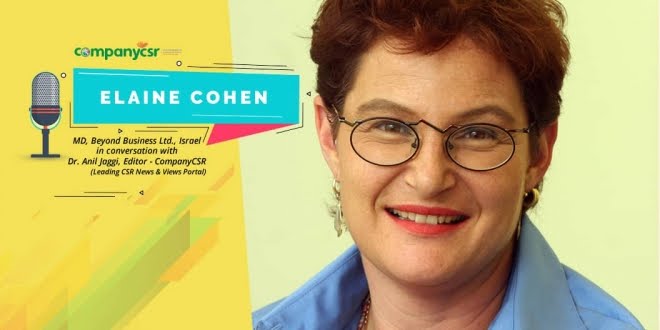
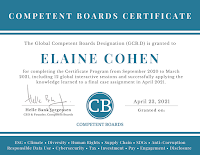


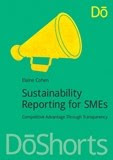
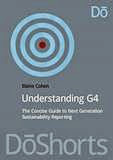
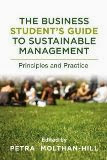
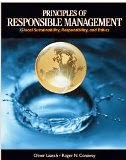
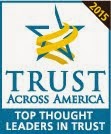










No comments:
Post a Comment